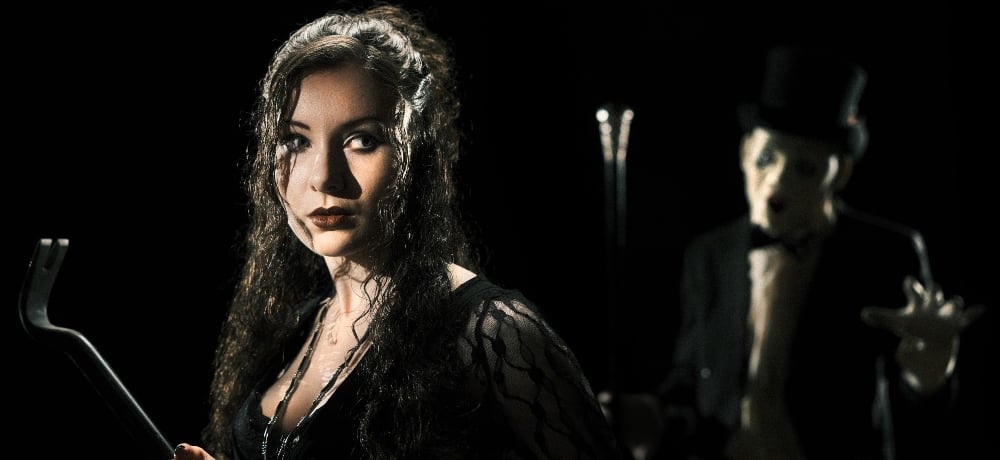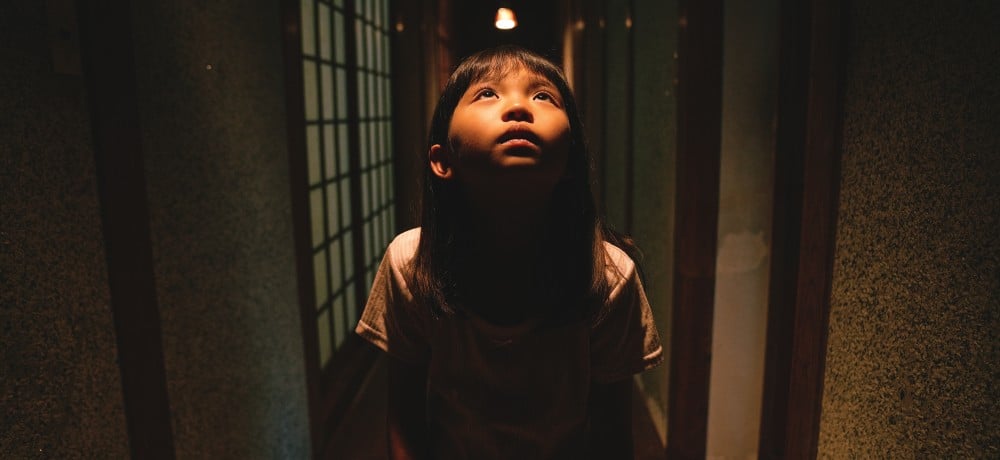






Yûta Shimotsu’s Best Wishes To All (also translated Best Regards to All) covertly starts like many Japanese horror films. A cheerful woman walks towards an ominous home, the camera pans onto a window. You’d expect Kayako to gaze back; it’s so familiar. But The Grudge’s antagonist does not appear, and Best Wishes To All removes its mask. Behind the guise of genre normality is a generational nightmare with bleak societal implications about the sacrifices civilization makes for lifelong happiness. It’s an unwieldy and clunky experience at times, but it only gets more intriguing with each new twist.
Kotone Furukawa stars as a young nursing student visiting her grandparents on break. She’s met with thuds from upstairs, odd behaviors, and a sinking feeling that something’s amiss. Grandpa’s caught staring at open doors, his mouth agape, while Grandma makes piggy noises at the dinner table. An old family photograph is found with a girl’s face scratched out. As the curious granddaughter discovers, her family is hiding a dreadful secret that borders on ritualism. Either she participates, or threatens hereditary doom (if their beliefs are real).
Shimotsu and co-writer Rumi Kakuta pen a screenplay raging with anti-generational commentary. Its themes are apparent: repeated sins of the past prey on the unloved and naive. An opening line from a sweet old granny, “I’m sorry the young have to be sacrificed,” sets the table for the horrors that follow. But Best Wishes To All is also frustrating in its employment of abstract curses and grotesque martyrdom. Furukawa sinks deeper into madness as she discovers what her family must do to remain happy, yet there’s a lax deployment of universal “rules” to comprehend.
Visual storytelling is overt and deranged, representing how elder generations breed replacements with the same broken ideals. Furukawa’s granddaughter learns that in order for her family to remain happy, others must pay a hefty price—but that’s only a beginning. Imprisonment chills turn into blood-crying body horrors, unexpected pregnancy scenarios, and this plague-ish corruption that sits like a pit in your stomach. It’s at times scary, but more disturbing on an existential level. Shimotsu holds a mirror to society and scowls at the monsters we’ve become, yet he can’t decide between being a demonic worship story, something vicious like The Sadness, or a haunted spiritual tale.
That’s the frustrating aspect of Best Wishes To All. What starts bone-chilling becomes gonzo-wacky, then a bloody mess, and even more. Shimotsu plunges deeper and deeper into the pains of a granddaughter trying to grapple with the insane burden thrust upon her by loving family members, but the narrative’s unraveling feels uncontained. That’s sometimes a positive choice—it’s a breakdown in the key of unpredictability. And yet, Best Wishes To All can be hard to saddle as the story bucks and jumps towards this convulsing and fucked-up ode to reprehensible family values. Intentions are clear, but executions become a tangle of anger and disgust.
At no time is Best Wishes to All expected (complimentary). Shimotsu’s on-the-nose portrayal of Japan’s cyclical and soul-sucking methods of happiness is furiously untamed. That’s admirable, but also detracts from the story’s overall ability to hold itself together. Between the exaggerated rubber-ball corpses, impromptu dance number, and civilian tragedy of it all, there’s a unique take on ingrained generational horrors. It might not be perfectly sharpened or delivered, but that’ll matter less if you find yourself gawking at the loss of humanity on screen.
Movie Score: 3/5